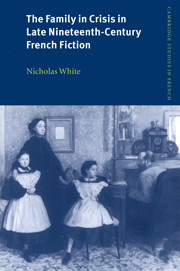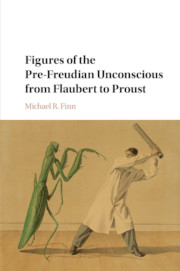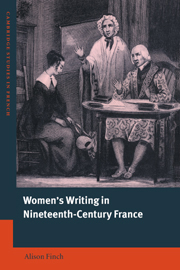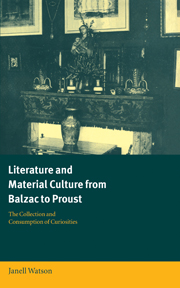The Family in Crisis in Late Nineteenth-Century French Fiction
The Family in Crisis in Late Nineteenth-Century French Fiction, first published in 1999, focuses on a key moment in the construction of the modern view of the family in France. Nicholas White's analysis of novels by Zola, Maupassant, Hennique, Bourget and Armand Charpentier is fashioned by perspectives on a wide cultural field, including legal, popular and academic discourses on the family and its discontents. His account encourages a close rereading of canonical as well as overlooked texts from fin de siècle France. What emerges between the death of Flaubert in 1880 and the publication of Bourget's Un divorce in 1904 is a series of Naturalist and post-Naturalist representations of transgressive behaviour in which tales of adultery, illegitimacy, consanguinity, incest and divorce serve to exemplify and to offer a range of nuances on the Third Republic's crisis in what might now be termed 'family values'.
- Offers new insights into the French novel of the late nineteenth century including the fin de siècle
- Makes fascinating new links between fiction and the social and cultural developments of the time
- Provides close and revealing analysis of canonical texts by Zola and Maupassant, set in context of work by lesser-known authors
Reviews & endorsements
"...his wide range of reference...succeeds in giving a new twist to a familiar, but vital theme. He is particularly successful in detecting the parodic, liberating the ludic to suggest the extent to which ethical problematics are subverted by narratological and stylistic laughter." Nineteenth-Century French Studies 28
"Cusset's final chapter, devoted to Vivant Denon, is brilliantly written and fittingly closses her study. Her analysis of languages versus the regimen of social codes is especially pointed and illminating....the conclusion, which its meditation on the on the discursive practices uniting Cusset's text, Particulary the overarching role of irony as a literary technique that reffirms the self's discotinuity, offers a splendid resume of this important study.....There is much pleasure for the reader...to be found in this original book. Susan Read Baker South Atlantic Review
Product details
November 2006Paperback
9780521026802
232 pages
228 × 152 × 16 mm
0.365kg
Available
Table of Contents
- Acknowledgements
- Introduction: fin de siècle, fin de famille?
- Part I. The Promiscuous Narrative of 'Pot-Bouille':
- 1. Demon lover or erotic atheist?
- 2. The rhythms of performance
- Part II. Pleasures and Fears of Paternity: Maupassant and Zola:
- 3. Bel-Ami: fantasies of seduction and colonization
- 4. Incest in Les Rougon-Macquart
- Part III. The Blindness of Passions: Huysmans, Hennique and Zola:
- 5. The conquest of privacy in A Rebours
- 6. Painting, politics and architecture
- Coda: Bourget's Un Divorce and the 'honnête femme'
- Notes
- Bibliography
- Index.







